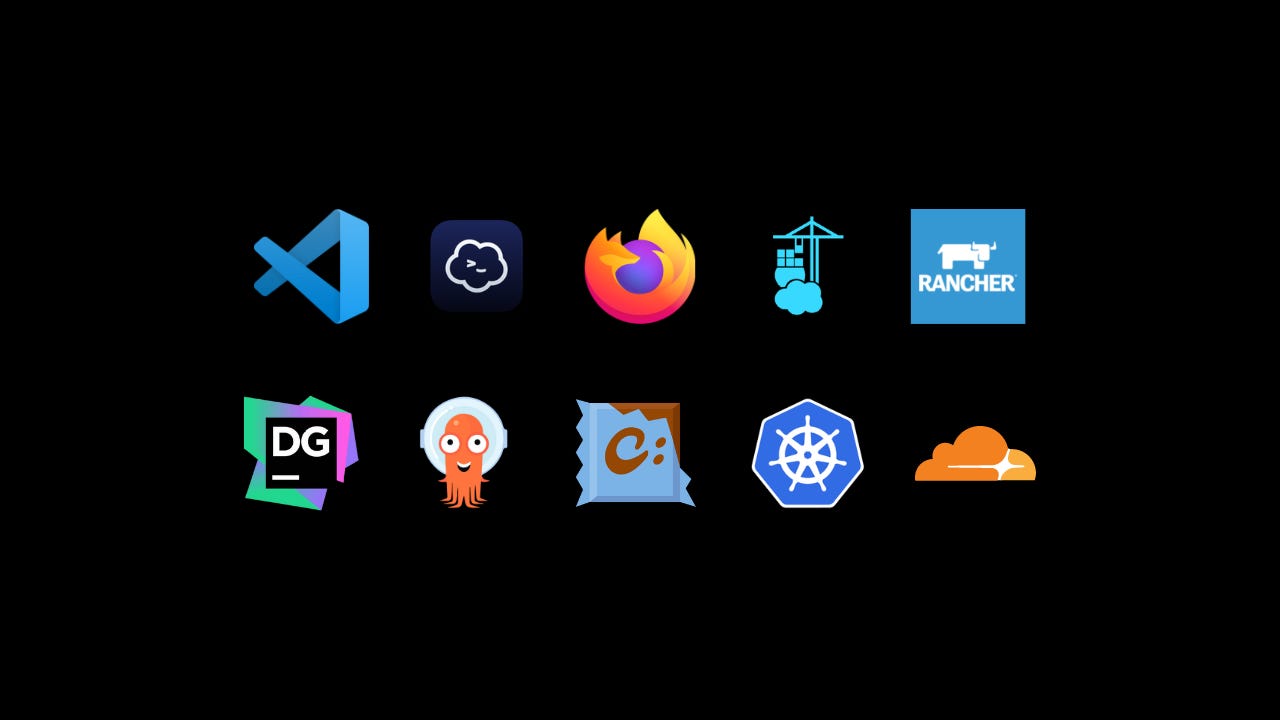Well, it took me a lot of testing and searching to find each of these tools and platforms. It seems like the Dev Ops community has a tool for everything. Everyone has their favorite programs, add-ons, platforms, and companies. So many options. I decided to compile a list of my favorite tools that I use every day in my current Dev Ops role. Some of these may not be a surprise to you all as they are considered tried and true. Sit back, relax, and enjoy my list.
Visual Studio Code - I love VSCode as do many of you out there. I have tried almost every text editor on the planet. I eventually narrowed it down to Atom, Sublime Text, and VSCode. What eventually won me over was the large amount of addons, themes, and customization features offered for VSCode. I love love love the sync feature since I constantly add new addons and want them synced across all my devices. My favorite theme is called Anirak and it was created by a developer named barjo (shout-out).
Termius - Termius is the answer to so many of my prayers. Since I have multiple devices, and since I wipe those devices pretty frequently due to Windows beta testing, I constantly was having to set up my terminal, apply my themes, install oh_my_zsh etc… Now, all I have to do is install Termius, log into my account, and all my ssh keys, hosts, usernames, passwords, fonts, and themes are pulled down from the cloud and I can get right to work. I also love the built in SFTP client that allows you to drag and drop files between servers. It really is worth the $9.99/month price tag and I would totally recommend.
Firefox - Everyone needs at least two browsers. One for work and one for personal. I decided that I would install the Dev Edition of Firefox alongside the stable edition and use dev for personal and stable for work. It works amazing. Firefox is the most secure browser by far. It also offers some great features. I used to use Brave for work but the sync feature got wonky more than once.
Portainer - Most of the work I do is in some kind of cloud running some kind of container on some kind of container management platform. We primarily use Kubernetes and Portainer is a great front-end for that. I use Portainer to manage pods, volumes, exec into pods, download logs, create compose stacks, edit docker networks, and the list goes on.
Rancher - Rancher is a front-end for Kubernetes. It offers some unique capabilities that Portainer does not have. Instead of being container focused like Portainer, Rancher is Kubernetes focused. In Rancher its easy and intuitive to edit configmaps, secrets, helm charts, node resources, scale up and down node pools, and monitor the clusters. I primarily use it to manage OKE clusters. Since Rancher comes with an OKE driver, it is a breeze to spin up OKE clusters without even having to log into Oracle.
DataGrip - I added this on the list because I am forcing myself to use DataGrip and not MySQL Workbench. Both are great options but I really need to start using it since I purchased the license for it. It works much the same as workbench, the UI is a little more updated and I really like the simplicity.
ArgoCD - Before I knew about ArgoCD, I would edit Kubernetes resources locally, edit on git, and then edit the actual resources in the cluster. Now, all I have to do is commit a change to git, and that Kubernetes resources is seen by Argo CD and pushed to the cluster. This is super handy when dealing with configmap changes, secrets, or even just deployments. GitOps is truly the future.
Chocolatey - As I mentioned earlier, I wipe my devices quite often due to bug I encounter during beta testing Windows 11. Chocolatey is a great tool for installing programs without having to open a browser and navigate to each website. I have a simple powershell script that installs 12 programs silently after I wiped my device. Pretty neat huh!
kubectl, kompose, kubens, helm - I have a lot of Kubernetes related command line tools I use in my terminal. Kubectl is a pretty basic and necessary tool used to engage with a Kubernetes cluster through the CLI. Kompose converts Docker compose files into Kubernetes resources. Kubens changes the namespace easier. And helm let’s you install helm charts to a cluster. Go check all of these out.
Cloudflare - Where would we be without Cloudflare? I love Cloudflare so much that I transferred all of my personal domains to it. Every application I host or help host is behind Cloudflare. It allows me to sleep at night and not worry about DDOS attacks. Recently, I started looking into their Zero Trust product and hope to review that in the future. Just a must have in my opinion.
That’s it. Hope you enjoyed.
Cheers,
Joe



